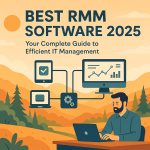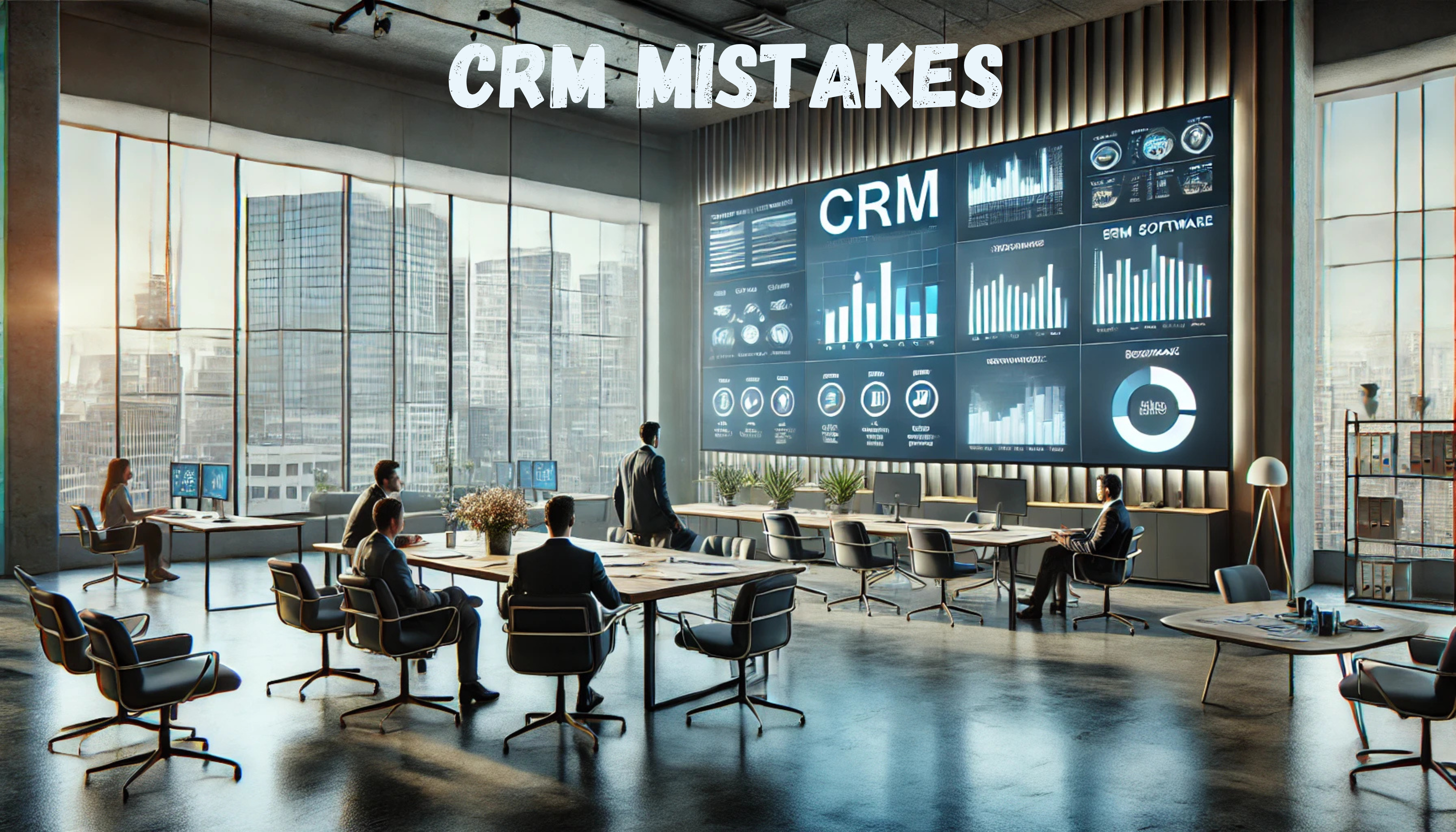Best Real Estate CRM Software for Agents: Top Picks Revealed!
In today’s fast-paced real estate world, having the best CRM system is key to success. Real estate CRM software helps agents manage client relationships and improve communication. It also tracks leads effectively. This way, we can build stronger connections, leading to more repeat business and better operations in a competitive market.
Our goal in this article is to show you the top real estate CRM software for agents. We aim to help you find the right tools that meet your needs and increase your productivity.
Key Takeaways
- A dedicated CRM system is important for managing relationships and enhancing client interactions.
- 27 products were tested to identify the most effective CRM options for real estate professionals.
- Key features such as contact management and integration are vital for maximizing the effectiveness of a CRM.
- Customization and AI tools are highly valued by users when selecting a CRM for real estate clients.
- We will provide insights on pricing models and options for free trials to help inform our decisions.
Understanding the Importance of a Real Estate CRM
In the fast-paced world of real estate, CRM systems are crucial. They help manage client relationships and streamline tasks. This makes agents more efficient and organized.
CRM systems offer many benefits. They help manage information, improve productivity, and boost client satisfaction. Agents can access data on any device, which is key in real estate.
CRM platforms also integrate with other tools, making work easier. They come with customer support and training. This helps agents get the most out of the system.
| CRM Features | Description |
|---|---|
| Contact Management | Organizes client information for easy access and interaction tracking. |
| Property Listings Management | Enables agents to manage and showcase property information effectively. |
| Task and Appointment Reminders | Helps agents stay organized by providing timely reminders. |
| Lead Management | Tracks and manages potential leads, preventing lost opportunities. |
| Customizable Reporting and Analytics | Allows agents to monitor key metrics for data-driven decision-making. |
| Mobile Accessibility | Facilitates access to the CRM from any device, enhancing productivity. |
| Integration with Third-Party Tools | Improves functionality by connecting existing tools and platforms. |
| Customer Support and Training | Provides resources for maximizing CRM value and overcoming challenges. |
Using a CRM system wisely can help real estate businesses grow. Agents should look for systems that are easy to use, flexible, and fit their budget. This leads to happier clients and more profit.
What is a Real Estate CRM?
A real estate CRM, or customer relationship management system, is a specialized software solution designed for real estate professionals to manage their interactions and relationships with clients, leads, and potential buyers. These tools are tailored specifically for the needs of real estate agents, streamlining various processes associated with buying, selling, and leasing properties. By consolidating essential functions such as lead management, client communication, and transaction tracking, a real estate CRM enhances productivity and helps agents navigate the complexities of the real estate market more effectively.
In a competitive industry where building and maintaining client relationships is vital, real estate CRMs provide agents with the capabilities to track client interactions, manage follow-ups, and analyze sales trends. This level of organization not only helps agents stay on top of their responsibilities but also allows them to personalize their approach to each client. Most real estate CRM’s come equipped with features such as automated reminders, marketing tools, and detailed reporting capabilities, enabling agents to craft targeted marketing campaigns and make data-driven decisions.
Moreover, many Real Estate CRM systems are designed for real estate, meaning they include integrations with popular listing services and can capture leads directly from the agent’s website or social media platforms. This ensures that every potential buyer or seller is accounted for, and no opportunities are missed. By centralizing essential data and communication tools, agents can focus on fostering relationships rather than getting bogged down by administrative tasks.
Ultimately, adopting a robust real estate CRM can be a game-changer for agents looking to enhance their performance and grow their business. These systems not only streamline daily operations but also empower agents to provide exceptional service, ensuring that they can meet their client’s needs in a timely and efficient manner. As the real estate landscape continues to evolve, having a dedicated CRM can position agents for long-term success in an ever-changing market.
A real estate CRM, or Customer Relationship Management system, is a tool for real estate pros. It helps manage client relationships and interactions. This includes tracking leads, organizing data, and improving marketing.
Real estate CRM systems have special features in this field. They offer property management, lead generation, and client tracking. The right CRM can boost efficiency and sales.
Using a real estate CRM helps build stronger client relationships. It lets agents understand customer needs better. This leads to happier clients and more loyalty.
| Feature | Benefit |
|---|---|
| Lead Management | Tracks and scores lead for better conversion rates |
| Customer Data Organization | Centralizes all client information for easy access |
| Communication Tools | Facilitates seamless interaction through various channels |
| Marketing Automation | Enhances outreach efforts through automated campaigns |
| Reporting and Analytics | Provides insights into performance and market trends |
In short, a real estate CRM is key for agents and agencies. It helps streamline work and build strong client ties. Knowing what a CRM offers is the first step to finding the right one.
Key Features to Look for in a Real Estate CRM
When we think about what to look for in real estate CRM, certain real estate CRM features stand out. These essential features of CRM are key for agents to focus on. They include:
- Contact Management: Organize and access client info effectively.
- Lead Tracking: Keep tabs on leads to boost conversions.
- Document Storage: Store important documents for easy access.
- Task Management: Manage appointments and tasks smoothly.
- Sales Pipeline Visualization: See where leads are in the sales process.
It’s also important to look at integration capabilities. Many CRMs work well with tools like MLS for real-time listings. They also connect with marketing solutions, making it easy to run ads.
CRMs with advanced reporting and analytics are a big plus. These essential features of CRM give us valuable data. This data helps us understand conversion rates and market trends, guiding our business decisions.
Other important features include artificial intelligence, user-friendly interfaces, and good customer support. Good support can make a big difference in our experience with real estate CRM features. It ensures any issues are quickly solved.
| Feature | Benefit |
|---|---|
| Contact Management | Centralizes client information for easier access and organization. |
| Lead Tracking | Helps in monitoring and maximizing conversion opportunities. |
| Document Storage | Ensures important documents are easily retrievable & organized. |
| Task Management | Streamlines daily operations, ensuring timely follow-ups and appointments. |
| Sales Pipeline Visualization | Provides clear insights into the current status of leads. |
| Integration Capabilities | Links with real estate tools for enhanced functionality and efficiency. |
| Analytics Features | Delivers valuable insights into sales performance and market trends. |
By focusing on these real estate CRM features, we can choose the best platform for our needs in real estate.
Benefits of Using the Best CRM System for Real Estate
Choosing the best CRM for real estate brings many benefits. One key advantage is better organization. Agents can easily manage contacts, listings, and interactions. This leads to more efficiency.
Marketing automation is another big plus. Agents can send automated emails and updates, saving time for closing deals. This makes nurturing leads easier with personalized messages.
CRM solutions also help with lead generation and management. Agents can track potential clients through detailed pipelines. This helps them focus their efforts wisely, boosting client retention and sales.
Lastly, the pricing of CRM solutions is a big factor. For example, Monday.com CRM starts at $12 per user each month. Wise Agent offers its Standard plan for $49 monthly. Each CRM has unique features and prices for different business sizes.
In summary, a good CRM system offers many benefits. It improves organization and marketing automation. For agents, it’s a key tool for boosting productivity and success.
| CRM Solution | Starting Price | Key Features |
|---|---|---|
| Monday.com CRM | $12/user/month | Task automation, project management, customization options |
| Wise Agent | $49/month | Lead management, follow-up reminders, and customizable templates |
| Propertybase | N/A | Recommended for small teams and large brokerages |
| LionDesk | $25/month | Contact management, email campaigns, text messaging |
| Real Geeks | $299/month | Real-time lead activity monitoring, SMS notifications, agent routing |
| Follow Up Boss | $58/user/month | Lead tracking, reporting, and automated tasks |
| Top Producer | N/A | Lead nurturing capabilities, integrated marketing tools |
| HubSpot CRM | N/A | Call tracking, AI email writing, live chat |
| Pipedrive | N/A | Contact management, insights, and reporting |
| Zoho CRM | N/A | Comprehensive analytics, easy collaboration, and automation |
Top CRM Software Recomandations for Real Estate Agents
Finding the right CRM is key for real estate pros. We’ve picked the best real estate CRM software after thorough checks. Each one has special strengths and features for different business needs.
HubSpot CRM: It has a free basic plan but with some limits. Paid plans start at about $20 and go up to $5,000. It’s good for those who need task automation and communication tools.
Pipedrive: It’s easy to use and starts at $9.90 a month, up to $49.90. It has lead segmentation and reporting tools, great for sales-focused agents.
LionDesk CRM: It starts at $25 a month and has a 30-day free trial. It has video email and SMS marketing, perfect for engaging clients.
Salesforce CRM: It’s customizable for big brokerages. It’s pricier but offers drip campaigns and mobile app access to boost productivity.
Zoho CRM: Pricing starts at $14 per user per month. It’s known for its automation and analytics, ideal for personalized solutions.
Wise Agent CRM: It costs $32 a month or $326 a year for up to four team members. It’s great for managing clients without high costs. A free trial is available.
Real Geeks CRM: It offers automated support for real estate businesses. It has real-time lead monitoring, perfect for agents who value productivity tracking.
Looking at these top CRM solutions for agents can meet various needs in real estate. Exploring CRM recommendations for real estate professionals offers insights tailored to your business.
How We Chose the Best Real Estate CRM Software
We took a detailed approach to pick the best real estate CRM software. We focused on evaluating CRM software based on user feedback and insights from experts in the field.
We watched live demos to see how easy each platform was to use. We checked how well they worked with other tools. This helped us find the key features that real estate agents need.
We did a deep dive into the best CRM software evaluation. We looked at prices, from LionDesk’s affordable plans to Sierra Interactive’s more advanced options. This helped us see which system fits each agent’s needs and budget.
In the end, choosing the right CRM was about finding tools that boost efficiency and connect with clients. Our detailed research helps agents make smart choices. This way, they can use technology to improve their work.
In-Depth Review of Our Top Picks
We’ve looked closely at the top CRM systems for real estate agents. We think knowing their prices, special features, and how easy they are to use is key. This real estate CRM comparison shows what makes each CRM stand out.
| CRM Name | Starting Price | Free Trial Duration | User Ratings | Key Features |
|---|---|---|---|---|
| Liondesk | $25/month | 30 days | N/A | Video emailing, lead management |
| HubSpot | $20/month | 14 days | 9.3/10 | High integrations, automation tools |
| Wise Agent | $32/month | Free trial available | N/A | Document storage, transaction management |
| Pipedrive | $9.90/month | Free trial available | N/A | Sales pipeline tracking, email integration |
| Salesforce | $25/user/month | N/A | 9.5/10 | High customizability, marketing automation |
| Keap | $159/month (2 users) | 14 days | 9.4/10 | Lead capture, automated follow-ups |
| Freshsales | $15/user/month | 21 days | N/A | AI-based insights, built-in phone |
In our top-rated CRM analysis, we’ve found CRMs for all budgets and team sizes. From Liondesk’s affordable start to Salesforce’s customizable options, there’s a fit for everyone. Our detailed reviews show agents can find a CRM that meets their needs without overspending.
Whether you’re a solo agent or part of a big team, our insights will guide you. We aim to help you choose a CRM that matches your goals.
Best for Real Estate Project Management
Choosing the right tools is key in real estate project management. A good project management CRM can make things run smoother. It helps teams work better together and keeps projects on schedule. Monday.com is a top choice because it’s easy to use and has lots of features.
This platform has tools for managing real estate projects well. Agents can handle sales, assign tasks, and keep an eye on timelines easily. It’s important to have tools that make tasks simple and help teams work together well. Seeing how work flows help manage complex projects and meet deadlines.
When looking at CRMs for real estate, focus on features that boost productivity:
- Collaboration Tools: Help team members talk better.
- Customizable Dashboards: Show data in ways that make sense.
- Task Automation: Make routine tasks faster.
- Progress Tracking: Keep track of project goals and deadlines.
Many are looking for effective CRM solutions. A good project management CRM can really help real estate work better. Using the best CRM for project management lets agents use the latest tools to succeed in real estate.
| CRM System | Pros | Cons |
|---|---|---|
| monday.com | Versatile and user-friendly, excellent for team collaboration. | Can become expensive based on user count. |
| HubSpot | Intuitive interface, strong integration capabilities. | Limited features compared to competitors. |
| Salesforce | Comprehensive analytics for insights, widely adopted. | Complex for beginners, requires substantial training. |
| Pipedrive | Sales-centric design, integrates with popular apps like Asana. | Steep learning curve, less intuitive for some users. |
| Zoho | Affordable, strong automation. | Integration issues reported by users. |
| Propertybase | Industry-specific features, robust property management. | Overly specialized for some users. |
Best for Large Brokerages
When we talk about CRM for big brokerages, Salesforce is often a top pick. It’s great at analytics and offers custom solutions for large real estate teams. Knowing the importance of CRM for big teams is key to boosting productivity and organization.
Other CRM solutions for real estate groups also stand out. For example, AscendixRE CRM is good for big teams. It has tools for tracking leads, integrating with Mailchimp, and tracking commissions. Its prices start at $79 per user per month for xRE Foundations and go up to $129 per user per month for xRE Unlimited.
REThink CRM is another option, priced at $120 per user per month plus a setup fee. It’s great for managing big operations with its deal pipeline and analytics. Apto Commercial Real Estate CRM is also user-friendly, with tools for managing contacts and deals.
| CRM Solution | Price (per user per month) | Key Features |
|---|---|---|
| Salesforce | Variable | Robust analytics, lead scoring, integration with third-party apps |
| AscendixRE CRM | $79 – $129 | Email integration, commission tracking, lease report generation |
| REThink CRM | $120 + $250 setup | Deal pipeline management, task tracking, Comps analytics |
| Apto CRE CRM | Variable | Contact management, prospecting tools, deal management |
When choosing the best CRM for big teams, we looked at price, features, and integration. These are key for success in large real estate brokerages. Making the right choice can really help teams work better together.
Best CRM for Individual Agents
Real estate solo practitioners need effective tools to manage their work. Choosing the right CRM can make a big difference. Options like Pipedrive are easy to use and designed for beginners.
These platforms make it simple to manage leads and follow up. This is key in the competitive real estate market. They help agents keep in touch with clients and turn leads into sales.
Having a CRM that focuses on sales pipelines is important. It helps agents track clients from start to finish. This ensures they can follow up on time, which boosts sales.
Today, being able to work from anywhere is crucial. Cloud-based CRMs let agents access their data anytime. They also keep data safe with automatic backups.
Being able to work from anywhere is key in real estate. Plus, integrating MLS data helps agents stay organized and up-to-date on property info.
Here’s a table summarizing some critical features to look for when evaluating the best CRM for individual agents:
| Feature | Description |
|---|---|
| Lead Conversion Tools | Helps agents track, manage, and convert leads effectively. |
| Automated Follow-Ups | Schedules reminders and sends emails without manual intervention. |
| Mobile Access | Cloud-based access for convenient data retrieval on the go. |
| Customizable Workflows | Craft tailored fields and forms that meet personal business needs. |
| Reporting and Analytics | Tracks key metrics to evaluate performance and ROI on campaigns. |
When picking a CRM, solo agents should think about their specific needs. They should look at different pricing models to find the best value. This includes both the initial cost and any ongoing fees.
Best for Combined Sales and Marketing Features
Finding a dual-function CRM like HubSpot can really boost our marketing and sales. It combines sales and marketing, making our work smoother and better at nurturing leads.
The best CRM for marketing and sales has many tools to help us reach out and follow up. HubSpot is great because it has:
- Email marketing that lets us send personalized messages.
- Social media tools to connect with people on different platforms.
- Advanced analytics to see how well our campaigns are doing.
Using a CRM with marketing automation saves us a lot of time. This lets us focus more on making sales. HubSpot shows how combining marketing in our CRM makes things more efficient and productive.
HubSpot is a top choice, especially for real estate pros. It helps us handle the tough real estate world better by combining marketing and sales.
Best for Customization
In the real estate world, finding a CRM that lets you customize is key. Zoho CRM is a top choice for this. It lets you add custom fields, change dashboards, and connect different tools easily. This makes sure agents can tailor their CRM to fit their business plans.
Other great options include Follow Up Boss and Tadabase. Follow Up Boss is known for its automatic lead import and customizable plans. Tadabase is flexible, letting agents create workflows and apps that meet their exact needs.
| CRM Software | Key Customization Features |
|---|---|
| Zoho CRM | Custom fields, dashboards, extensive integrations |
| Follow Up Boss | Customizable action plans, built-in texting, emailing capabilities |
| Tadabase | Highly flexible app and workflow building |
| Wise Agent | Automated workflows, customizable transaction management |
| BoldTrail | Lead capture pages, automated follow-up campaigns |
Personalizing your real estate CRM can really change how you work with clients and manage your business. Picking a CRM that’s easy to customize will boost your efficiency and make customers happier.
Best for Client Communication
Keeping strong client relationships is key, and a good CRM is vital. Our research shows 60% of top real estate agents make over $100,000 a year. They use a top-notch CRM for client interaction. This highlights the need for the right tools to improve client ties.
The leading CRM is made for keeping in touch with clients. It has features like email marketing and tracking customer interactions. These help agents follow up well, avoiding any communication breaks during sales.
Real estate pros say a good CRM is essential for success. Over 90% of users want AI tools in their CRM. This shows how important automation is in today’s client communication.
The best CRM also has tools specific to real estate. It has custom fields and automation for personalized messages. This makes each client feel special. As we look at CRMs, we see how crucial these tools are for agents every day.
Lead Organization and Follow-Up Tools in Real Estate
Converting leads in real estate needs good lead organization and follow-up tools. A strong lead management CRM, like Wise Agent, has features for categorizing leads and scheduling follow-ups. It also keeps detailed records of communication. This makes it easier to track potential clients and ensures we don’t miss any interactions.
Choosing the right tools is key to being efficient and successful. Here are some top tools for real estate follow-up:
- Lead Categorization: Helps prioritize leads based on their readiness to buy.
- Automated Reminders: Schedules follow-up appointments to avoid missing chances.
- Communication History: Stores and retrieves past interactions to understand client needs better.
- Document Storage: Keeps important documents organized and easy to find, making transactions simpler.
Our research shows we looked at 11 companies for the best real estate CRM in 2024. We considered 29 factors in our evaluation. Zoho CRM scored 4.7 out of 5, showing it’s great for follow-up and organization.
The table below compares ratings and prices of various CRMs. It shows their strengths in lead management and follow-up:
| CRM Solution | Rating | Price Range (per seat/month) |
|---|---|---|
| Zoho CRM | 4.7 | $20 – $65 |
| HubSpot | 4.4 | $20 – $100 |
| Freshsales | 4.3 | $11 – $71 |
| Pipedrive | 4.2 | $24 – $129 |
| Follow Up Boss | 3.9 | $69 – $1,000 |
| Top Producer | 3.8 | $129 – $429+ |
| LionDesk | 3.3 | $39 – $139 |
| Wise Agent | 3.3 | $49 – $499 |
| Realvolve | 3.1 | $94 – $99 |
With this information, we can make better choices for real estate follow-up systems. The right lead management CRM can make our workflow smoother and improve our chances of successful client interactions.
Understanding Pricing Models for Real Estate CRMs
Choosing the right CRM for real estate is crucial. We need to understand the different CRM pricing models. The costs of real estate CRM vary widely, based on features and user numbers. For example, basic plans usually cost about $23 a month.
Mid-tier plans average $102, and top-tier plans can go up to $403 or more. Some CRMs offer discounts for annual payments. For example, monday.com gives an 18 percent discount for yearly payments.
Zendesk charges $115 for its highest plan, while Salesforce can cost up to $500. Premium plans offer more customization, which is great for bigger teams.
There are also affordable choices like Freshsales, which has a free plan for unlimited users. Zoho CRM offers a 30-day free trial and a 34 percent discount for annual payments. These options are perfect for those who want to try before they buy.
The costs of real estate CRM also depend on the provider. For example, Pipedrive’s starting plan is $14.90 per user per month. Brevo starts at $12 per user. These plans include important features like lead management and marketing tools.
When budgeting for CRM software, it’s important to consider these factors. This helps us choose a CRM that fits our needs and budget. Knowing about CRM pricing models helps us make smart choices for our real estate business.
Free Trials and Demos: Testing Before You Buy
Looking into CRM software can feel overwhelming with so many choices. Luckily, many providers offer CRM free trials to help us choose. These trials usually last 14 days, letting us try the software without risk. Some even give a 90-day trial, giving us more time to get used to it.
It’s key to take these chances to test CRM software well. Each trial lets us check out features, how easy it is to use, and more. This way, we can see if it fits our unique needs as real estate agents.
Many agents find CRM demos for agents in these trials very helpful. Demos show what the software can do and what it can’t. Reviews on sites like G2 and Capterra show how different people feel about it, helping us know what to expect.
When looking at CRMs like Salesforce, HubSpot, and Pipedrive, pricing varies from $25 to $1599 a month. Trying them out before buying is a smart move. By exploring these options during their trial periods, we can pick the CRM that’s right for us.
Choosing the Right CRM for Your Real Estate Business
Choosing a real estate CRM is a big decision. We need to think about what our business needs. First, we should look at lead management, automated marketing, and task organization. These features help us work better and focus on what’s important.
It’s smart to look for tips for choosing CRM that fit our business. This way, we can make a choice that works for us.
A good CRM has tools like reports and reminders. It helps us stay on track. We should also think about how well it works with our current tech. The best CRM for unique businesses in real estate should fit with what we already use.
Being able to work from anywhere is also important. Cloud and mobile options let us stay productive, no matter where we are.
Cost is another big factor. We need to look at the pricing and any extra costs. Knowing how a CRM is priced helps us choose one that fits our budget.
Looking at how well a CRM works is also key. Success stories and performance stats give us a good idea of its value. This helps us decide if it’s right for our business.
Finally, don’t ignore what other users say. Their feedback can tell us a lot about a CRM’s quality and if it meets our needs. It helps us see how well it handles client data and lead tracking.
| Consideration | Description |
|---|---|
| Business Needs | Identify features required for lead management, marketing, etc. |
| Integration | Check compatibility with existing systems and technology. |
| Cost | Evaluate pricing models and any additional charges. |
| User Feedback | Review testimonials and performance statistics for reliability. |
| Functionality | Look for analytical reporting, reminders, pipeline management. |
By thinking about these points, we can pick a CRM that really helps our real estate business. It will make us more productive and successful.
Conclusion
Choosing the best real estate CRM is key to managing client relationships well. It helps us keep client and lead info in one place. This makes it easier to understand what clients want and talk to them better.
CRMs also let us automate tasks. This means we can focus on more important things. It helps us stay organized and keep in touch with clients in a way that feels personal.
When picking a CRM, it’s important to think about what we need. We should look for tools that help with lead management and sales tracking. These features give us the data we need to make smart choices.
CRMs are made for the fast world of real estate. They help us close more deals and make clients happy. By using a good CRM, we can work better and make more money.
In the end, the right CRM makes our work easier and helps us serve clients better. It keeps all our data in one place and makes our work flow smoother. This helps us stand out in the real estate market and grow our business.
Source Links
- Best Real Estate CRMs of 2024 – https://www.marketwatch.com/guides/business/best-crm-for-real-estate/
- 5 Best Commercial Real Estate CRMs – https://theclose.com/best-commercial-real-estate-crms/
- 8 Must-Have Features for CRM in Real Estate – Nimble Blog – https://www.nimble.com/blog/crm-features-real-estate/
- Best CRM For Real Estate Of 2024 – https://www.forbes.com/advisor/business/software/best-real-estate-crm/
- The best 15 CRMs for real estate – https://monday.com/blog/crm-and-sales/crm-for-real-estate/
- The 15 Best Real Estate CRMs in 2024 – https://blog.hubspot.com/sales/real-estate-crm
- 10 Best Real Estate CRMs (for All Real Estate Agents) in 2024 – https://www.close.com/blog/real-estate-crms











